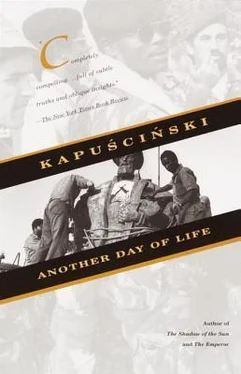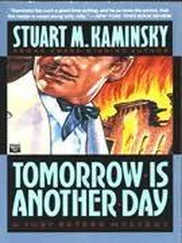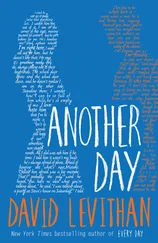Later, when all the barbers, repairmen, mail carriers, and concierges had left, the stone city lost its reason for existing, its sense. It was like a dry skeleton polished by the wind, a dead bone sticking up out of the ground toward the sun.
The dogs were still alive.
They were pets, abandoned by owners fleeing in panic. You could see dogs of all the most expensive breeds, without masters — boxers, bulldogs, greyhounds, Dobermans, dachshunds, Airedales, spaniels, even Scotch terriers and Great Danes, pugs and poodles. Deserted, stray, they roamed in a great pack looking for food. As long as the Portuguese army was there, the dogs gathered every morning on the square in front of the general headquarters and the sentries fed them canned NATO rations. It was like watching an international pedigreed dog show. Afterward the fed, satisfied pack moved to the soft, juicy mowed grass on the lawn of the Government Palace. An unlikely mass sex orgy began, excited and indefatigable madness, chasing and tumbling to the point of utter abandon. It gave the bored sentries a lot of ribald amusement.
When the army left, the dogs began to go hungry and slim down. For a while they drifted around the city in a desultory mob, looking for a handout. One day they disappeared. I think they followed the human example and left Luanda, since I never came across a dead dog afterward, though hundreds of them had been loitering in front of the general headquarters and frolicking in front of the palace. One could suppose that an energetic leader emerged from the ranks to take the pack out of the dying city. If the dogs went north, they ran into the FNLA. If they went south, they ran into UNITA. On the other hand, if they went east, in the direction of Ndalatando and Saurimo, they might have made it into Zambia, then to Mozambique or even Tanzania.
Perhaps they’re still roaming, but I don’t know in what direction or in what country.
After the exodus of the dogs, the city fell into rigor mortis. So I decided to go to the front.
Comandante Ndozi stands in the shade of a spreading mango tree. He wipes his sweaty face. Winning a battle takes physical exertion, too. It is just like cutting down a forest. He orders a group of soldiers to bury the dead. Friend and foe can be interred together — nothing means anything after death. Besides, as our proverb has it: Enemies on earth, brothers in heaven. He asks if the truck has left for Luanda with the wounded. It hasn’t, because the driver is waiting for a shipment of gasoline. The wounded are lying in the truck, moaning and calling for help. There is no doctor on this front. If the gasoline doesn’t come, half the wounded will bleed to death. Then Ndozi sends an orderly in the direction of some gunfire. He is to see if it is a skirmish with the withdrawing enemy, or if the boys are firing salutes to celebrate the victory. He suspects they are wasting ammunition, which is also running short. The enemy will strike tomorrow and we will give up the town because there won’t be anything to defend it with. He says he has eternal problems with ammunition. Eternal — that’s stretching it. This is the beginning of the war and his unit has been in existence for only a month.
Ndozi has years of guerrilla warfare behind him, but the troops he is leading are green. A green soldier fears everything. When he is transported to the front, he thinks death is watching him on every side. Every shot is aimed at him. He doesn’t know how to judge the range or direction of fire, so he shoots anywhere, as long as he can shoot a lot without stopping. He is not hurting the enemy, he is killing his own terror. He is stifling the dread that paralyzes a man and prevents him from thinking. Or rather, the dread doesn’t let him think about what is happening around him, about how to win the battle that his unit is engaged in, because at that moment he has a more important battle to win: he must win the war with his own fear. During the attack today, says Ndozi, I ran up to one who was standing there shooting a bazooka straight up in the air. Don’t aim up, I screamed, aim in front of you at those palms, that’s where they are. But I could see that he had a gray face, that finding the enemy hadn’t crossed his mind, that nothing was getting through to him because he was fighting his own enemy, who wasn’t among the palms but inside him, in the boy himself. He was firing because he wanted to stun himself, he wanted to stupefy himself and survive the attack of fear.
Ndozi continues his account. The supply officers call: Who did you share your ammunition with? I answer that it’s been fired. How many did you kill? Two. A half ton of cartridges and only two dead? But there was no need to kill more; we were to take the town, and we’ve taken it. None of the quartermasters comes to the front to see how green soldiers, who don’t know war, fight. At night, the unit moves up close to where the enemy is. We open fire just before dawn. The inexperienced soldier thinks the main thing is to make a big racket. He fires like a man possessed, blindly, because all he cares about is noise, communicating to the enemy how much strength is approaching. This is a form of warning, a way of evoking a fear in the opponent that will be greater than ours. And there is a sort of rationale to it. Because the other side is also unfamiliar with war, unfamiliar with gunfire; surprised by volley, they withdraw and flee.
The skirmishes in the first days of the war were limited to just such actions of firepower. They rarely came to direct combat. Once, says Ndozi, I lived through such an adventure: My people shot off all their ammunition at the beginning and later they couldn’t attack because there was nothing to attack with. I sent scouts into the town that we were supposed to attack. They returned and said that there wasn’t a soul there, the enemy had fled. When we walked into our objective, nobody in my unit had a single cartridge in his clip.
We didn’t want this war, Ndozi insists. But Holden Roberto struck from the north and Jonas Savimbi from the south. This country has been at war for five hundred years, ever since the Portuguese came. They needed slaves for trade, for export to Brazil and the Caribbean and across the ocean generally. Of all Africa, Angola supplied the greatest number of slaves to those countries. That’s why they call our country the Black Mother of the New World. Half the Brazilian, Cuban, and Dominican peasants are descended from Angolans. This was once a populous, settled country and then it was emptied, as if there’d been a plague. Angola is empty to this day. Hundreds of kilometers and not a single person, like in the Sahara. The slave wars went on for three hundred years or more. It was good business for our chiefs. The strong tribes attacked the weak, took prisoners, and put them on the market. Sometimes they had to do it, to pay the Portuguese taxes. The price of a slave was fixed according to the quality of his teeth. People pulled out their teeth or ground them away with stones in order to have a lower market value. So much suffering to be free. From generation to generation, tribes lived in fear of each other, they lived in hatred. The military campaigns took place in the dry season, because it was easier to move then. When the rains ended, everyone knew that the times of misfortune and of hunting for people had begun. In the rainy season, when the country was drowning in water and mud, hostilities stopped. But the chiefs were thinking up new campaigns, marshaling new forces. This is remembered by everyone even today because, in our thinking, the past takes up more space than the future.
I began fighting ten years ago, says Ndozi, in Comandante Batalho’s unit. That was eastern Angola. We had to learn the languages of the local tribes and act in accordance with their customs. This was a condition of survival — otherwise, they would have treated us as foreigners trespassing on their land. And yet, we were all Angolans. But they don’t know that this country is called Angola. For them, the land ends at the last village where the people speak a language they understand. That’s the border of their world. But, we asked, what lies beyond that border? Beyond that border lies another planet inhabited by the Nganguela, which means nonhumans. You have to keep an eye on those Nganguelas, because there are a lot of them and they use an incomprehensible language that conceals their evil designs.
Читать дальше











